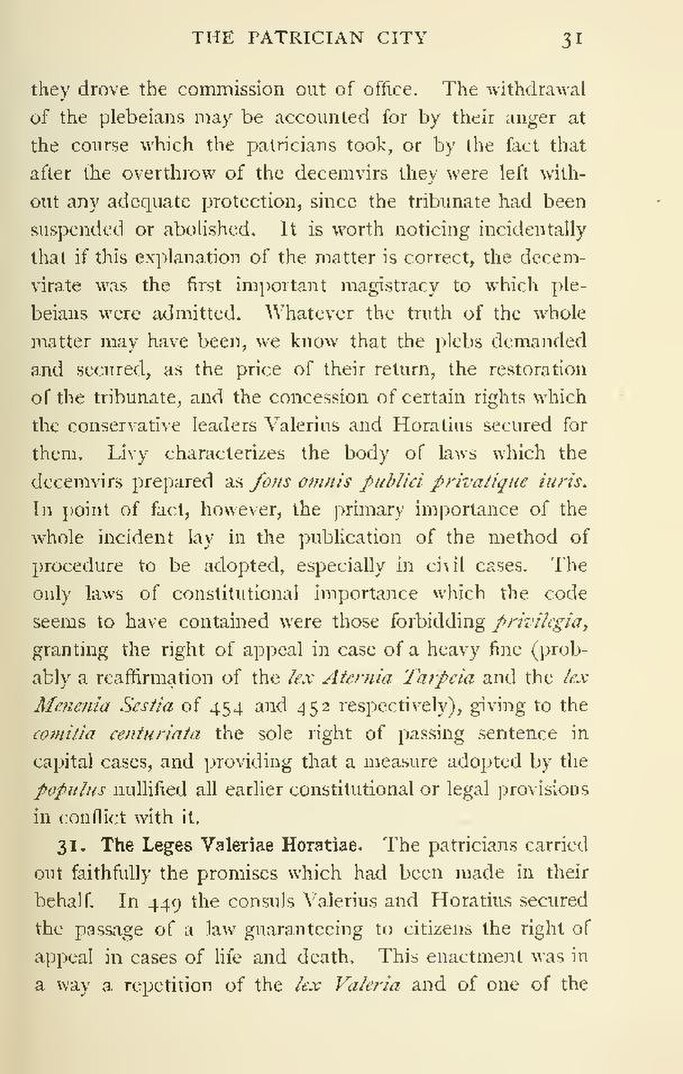they drove the commission out of office. The withdrawal of the plebeians may be accounted for by their anger at the course which the patricians took, or by the fact that after the overthrow of the decemvirs they were left without any adequate protection, since the tribunate had been suspended or abolished. It is worth noticing incidentally that if this explanation of the matter is correct, the decemvirate was the first important magistracy to which the plebeians were admitted. Whatever the truth of the whole matter may have been, we know that the plebs demanded and secured, as the price of their return, the restoration of the tribunate, and the concession of certain rights which the conservative leaders Valerius and Horatius secured for them. Livy characterizes the body of laws which the decemvirs prepared as the fons omnis publici privatique iuris. In point of fact, however, the primary importance of the whole incident lay in the publication of the method of procedure to be adopted, especially in civil cases. The only laws of constitutional importance which the code seems to have contained were those forbidding privilegia, granting the right of appeal in case of a heavy fine (probably a reaffirmation of the lex Aternia Tarpeia and the lex Menenia Sestia of 454 and 452 respectively), giving the the comitia centuriata the sole right of passing sentence in capital cases, and providing that a measure adopted by the populus nullified all earlier constitutional or legal provisions in conflict with it.
31. The Leges Valeriae Horatiae. The patricians carried out faithfully the promises which had been made in their behalf. In 449 the consuls Valerius and Horatius secured the passage of a law guaranteeing to citizens the right of appeal in cases of life and death. This enactment was in a way a repetition of the lex Valeria and of one of the
